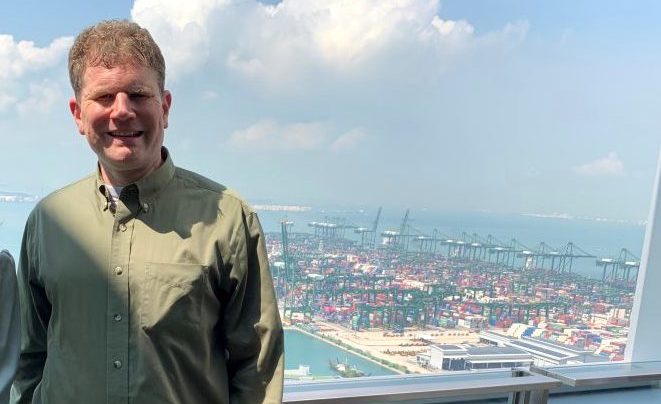FMC makes its pitch to Senate for greater powers

Commissioners from the Federal Maritime Commission (FMC) laid out to senators in Washington DC yesterday why they believe their regulatory body needs greater powers and funding to help tackle the supply chain crisis that has racked the US during the pandemic.
FMC chairman Daniel Maffei (pictured) and commissioner Rebecca Dye appeared before the Senate Committee on Commerce, Science and Transportation to answer questions on the Ocean Shipping Reform Act, a bill that has already passed through the lower house late last year.
The bill would bolster the FMC’s powers and was something supported by president Joe Biden in his State of the Union address earlier this week.
“There’s not a whole lot of opportunity these days to do something bipartisan that’s going to help people in farmland and in inner cities, and this is one of them,” Maffei said of the bill, saying currently the FMC does not have the necessary resources to fulfill its mission.
“We are a very small agency, and we certainly could use more resources,” Maffei said.
Amid booming carrier profits, dire schedule reliability, and troubles to get US agricultural exports out of the country, American politicians and regulators have taken aim at liners and their alliance networks in recent months.
Maffei hit out at the lack of transparency from the global carriers, who share proprietary information with the commission on pricing that can’t be made public due to current law.
The proposed new bill did meet some opposition at yesterday’s senate hearing. Senator Mike Lee said the proposed Ocean Shipping Reform Act could “end up slowing down the ability to move empty containers out of the ports and exacerbate our current backlogs.”
In his state of the union speech on Tuesday, president Biden accused global ocean carriers of anti-competitive behaviour. He said: “When corporations don’t have to compete, their profits go up, your prices go up, and small businesses and family farmers and ranchers go under. We see it happening with ocean carriers moving goods in and out of America. During the pandemic, these foreign-owned companies raised prices by as much as 1,000% and made record profits.”
Bud Darr, executive vice president for maritime policy and government affairs at Mediterranean Shipping Co (MSC), the world’s largest containerline, took to LinkedIn this week to express his distress at the way the White House was pursuing liners.
“As an American citizen, I am deeply troubled by something labeled as a ‘Fact Sheet’ being released by the White House so full of mis-statements and intentionally distorted content. It is shameful that in a political effort to find scapegoats for inflation on the eve of the Annual State of the Union Address, that the elected leadership of the US would be so inaccurate in their statements,” Darr wrote.
Supply chain disruption was not the result of some sort of anti-competitive or other nefarious conduct on the part of the ocean carriers, Darr argued, suggesting rather it has been down to the lack of shoreside US supply chain capacity and long-neglected port and intermodal infrastructure.
